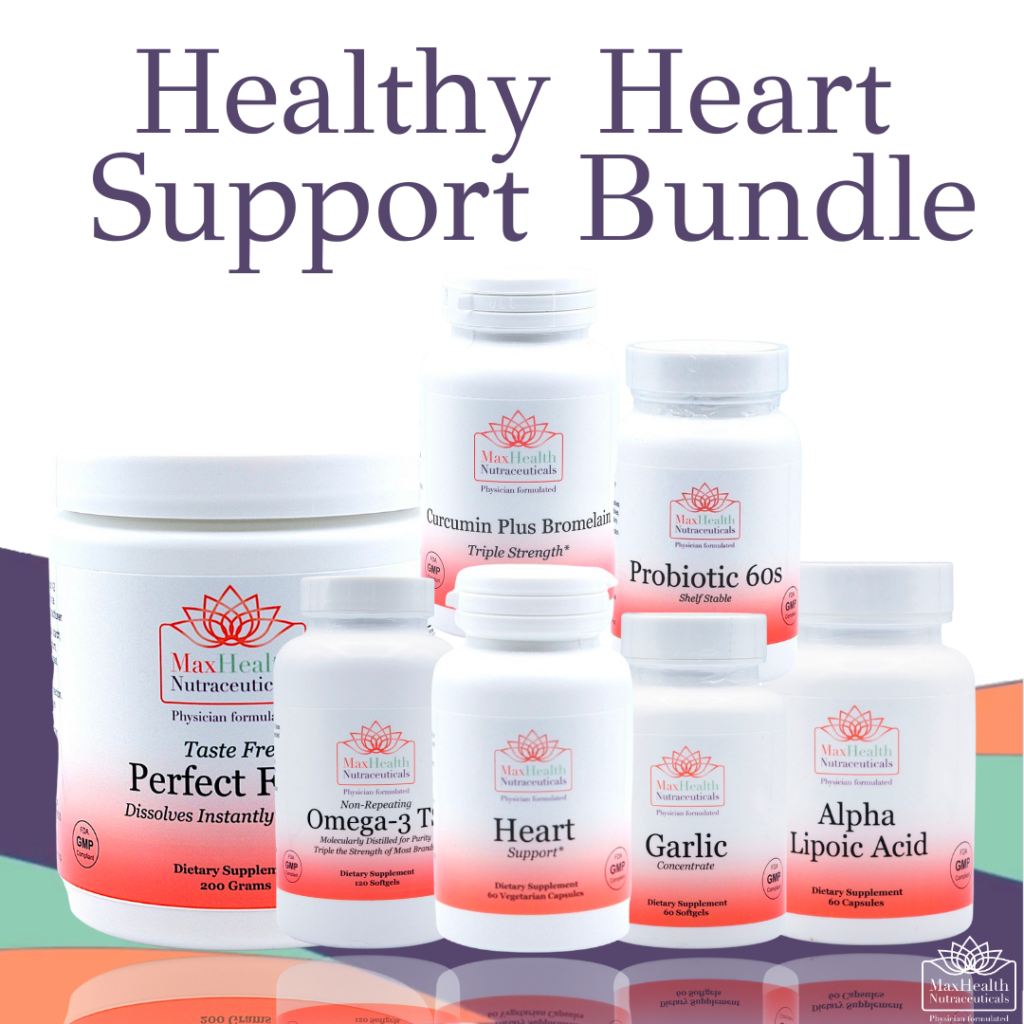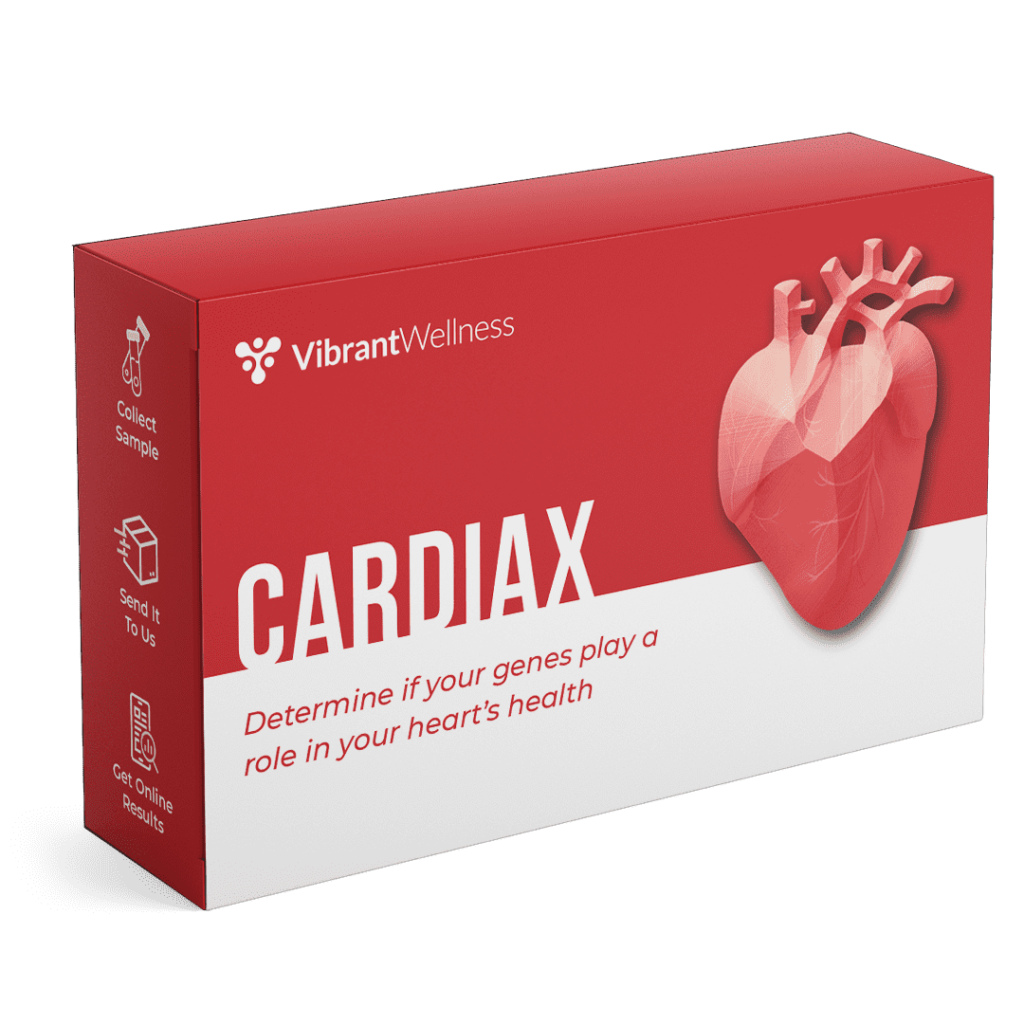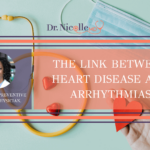
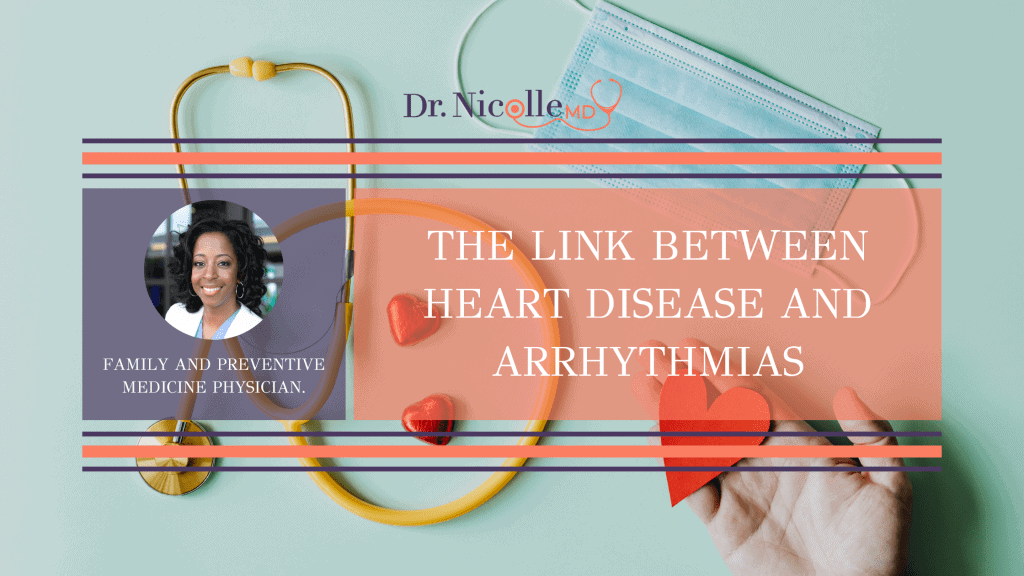
Hello. This is Heart Health Tuesdays! Today, we’ll talk about heart disease’s connection to arrhythmias. Normally, your heart beats at a steady pace between about 60 to 100 beats per minute (bpm). However, in some cases, your heart may beat faster, slower, or in an irregular rhythm. This is known as heart arrhythmia.
In many cases, a heart arrhythmia is only temporary and goes away on its own. That said, you should never let a heart arrhythmia continue without seeing a doctor. When it occurs alongside heart disease, it can be dangerous and, in some cases, life-threatening.
What Is Heart Arrhythmia?
Your heart has a natural pacemaker known as the sinoatrial (SA) node. This node controls the rhythm of your heartbeats with electrical impulses.
Under normal conditions, the electrical impulses ensure your heartbeats are steady and strong at a measured pace. If you are experiencing an arrhythmia, these impulses may be too fast, too slow, or off-rhythm, which in turn affects the pace of your heartbeats.
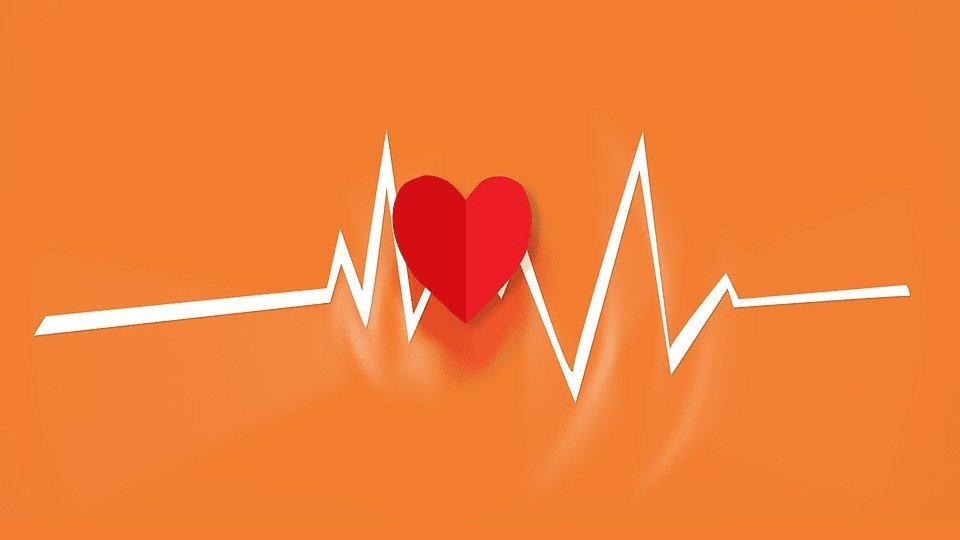
Rapid Abnormal Rhythms
Resting heart rates over 100 bpm are considered rapid abnormal rhythms. This is known as tachycardia, and it can feel like a fluttering sensation in your chest that leaves you feeling faint, dizzy, or out of breath.
Note that to be considered tachycardia, your heart rate must be measured when you’re at rest. Having a faster heart rate during and immediately after exercise is perfectly normal. But if you are sitting on the couch without exerting yourself, a fast heart rate is abnormal, and it could be a cause for concern.
You may experience tachycardia in the atria of your heart or in the ventricles. It often weakens the pumping of your heart, which can reduce blood flow.
Slow Abnormal Rhythms
If your heart rate falls below the lower limit of a regular resting rate, 60 bpm, this is considered a slow abnormal rhythm. It is also known as bradycardia.
Like tachycardia, having a slightly slower heart rate isn’t always a bad thing. In fact, if you get a lot of exercise and you’re very physically fit, you may have a slower average heart rate. Your bpm may also fall below this level when you are sleeping or if you are taking medication for high blood pressure.
That said, if none of these conditions apply to you, persistently slow heartbeats could indicate your body isn’t getting an adequate supply of oxygenated blood. Bradycardia can also coincide with skipped heartbeats in some cases.

Irregular Rhythms
You may still have a heart arrhythmia if you don’t experience persistent slow or fast heartbeats, but instead, you feel like your heart occasionally skips a beat or beats prematurely. This is considered an irregular rhythm.
While these heart palpitations can be uncomfortable, they’re not usually serious if they occur without any other symptoms. If you have chest pain, struggle to breathe, feel dizzy or lightheaded, or you faint alongside heart palpitations, you should seek medical treatment.
One of the most common causes of irregular heartbeats is atrial fibrillation (AFib). The symptoms of AFib are shortness of breath, palpitations, or even persistent pain similar to a heart attack. Your heart rate may also be very fast, or it can be a normal rate. AFib can increase your risk of having a stroke or heart failure.
Heart Arrhythmia and Heart Disease
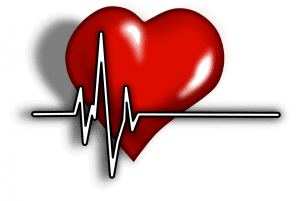
Heart arrhythmias can occur as an isolated event, but they’re usually more serious if they occur alongside heart disease. Conditions like diabetes and high blood pressure can lead to more severe forms of heart rhythm disturbances, as can other heart disease risk factors such as smoking and high cholesterol.
Arrhythmia and Heart Disease Treatment
Sometimes heart arrhythmias are caused by underlying initial damage to the heart, such as can be seen with early heart disease. This means that it’s very important to begin utilizing common heart disease treatment strategies like eating healthier, getting more rest, quitting smoking, and exercising more frequently as soon as possible.
Speak to your doctor about any irregularities with your heart right away. They will help you identify the problem and help you find the best treatment regimen for the problem. This may involve prescription medications and consulting a cardiologist for their expertise in treating the problem.
Certain anti-arrhythmic medications and blood thinners can help bring rapid heart rates under control. In some cases, you may need an implantable device like a pacemaker or defibrillator to reduce your risk of cardiac arrest. These devices regulate your heart rhythms by creating their own electrical impulses.
If you have extensive coronary artery blockages in addition to any arrhythmia, you may need coronary bypass surgery to restore proper blood flow to your heart and help treat the arrhythmia.
Food For Thought
Heart palpitations and other irregularities can be benign or sometimes severe problems. It’s best to always seek advice from a doctor who can identify the underlying cause of these conditions and help you find an effective treatment plan.
If you would like to receive a free resource sheet to support your quest for better heart health, click the button below to receive your gift.
I’m excited to talk about this topic today because not only do I truly believe that you have the power to reverse heart disease and lower high blood pressure to improve your health, but the science also agrees! You can adopt healthy lifestyle practices that improve your health and enrich your life, which can in turn improve the lives of those close to you. You have the power to break the cycle of these chronic diseases so that you can leave a legacy of health to your loved ones.
As you may already know, I use lifestyle medicine as the first line of treatment, before medications, to treat lifestyle-related chronic diseases. Lifestyle-related chronic diseases include diabetes, hypertension, obesity, and some cancers, just to name a few. Lifestyle practices, such as eating a whole-food plant-based diet and regular physical activity, can help you improve blood pressure and reverse heart disease. In certain cases, these approaches may even outperform pharmaceutical therapy. But I always tell my patients that conventional medications may be appropriate at this time to prevent catastrophic illness, but over time, you can work to make the necessary lifestyle changes to possibly reduce and/or eliminate medications. Please remember to always consult your physician for your particular needs and circumstances prior to making any decisions whatsoever.
Is Dietary Supplementation Right For You?
There is a common saying, “You can’t outrun a bad diet.” This is especially true when it comes to heart health. Diet is sooooo very important… Did you know that your diet could be the key to a healthy heart? It’s true – what you eat (and don’t eat) can have a big impact on your cardiovascular health. So, if you’re looking to keep your heart in tip-top shape, make sure you pay attention to what you put on your plate.
Unfortunately, it can be difficult to eat a healthy diet in this day and age. It is very important to note that we are not eating the same foods we ate years ago because the soils have been depleted of critical nutrients through current industrial farming practices. And because the soil is not as good as it used to be, the food supply (grown from the depleted soil) is not as good as it used to be. For example, you are not getting the same levels of magnesium as you would have gotten 30 or even 50 years ago.
Second, much of the food has been genetically altered, which can impact the inherent and unique nutritional composition that each food possess. For example, ancient einkorn wheat has less gluten, more protein, more Vitamin A, and more beta carotene, than modern genetically modified wheat.
Third, the toxic load in the environment today is much higher than 100 years ago. We can see this with global warming, toxic landfills, polluted oceans and waterways, etc. Toxicity levels interfere with nutrient assimilation and absorption not just into the foods, but into our bodies as well.
For some people, vitamin and mineral supplements offer important health benefits. Supplements are designed to fight deficiencies found in our diet and complement the food we eat regularly. Supplements are basically “helping hands” to our daily food.
If you need extra help in getting the nutrients you need, and/or are unable to eat better, the supplements in my Healthy Heart Bundle may provide the extra boost you need.
These are my favorite Heart Health Supplements to use! This Healthy Heart Bundle will ensure you have the intake of the important vitamins, minerals, and probiotics to decrease inflammation and boost your innate wellness day and night. Taken together, it’s a solid plan for increasing your body’s natural resiliency while you lose weight and improve your heart health, naturally.
For best results make sure you use my heart health supplements with dietary changes including a whole food plant-based diet, regular exercise (at least 2-3x per week), regular sleep (8 hours per night), and intermittent fasting (at least 1-3x per week).
Tools to Improve Heart Health
Blood Pressure Monitoring
It’s very important to monitor your blood pressure. I often recommend an automatic upper arm blood pressure cuff, but a wrist blood pressure monitor is also acceptable.
Weight Monitoring
Since weight management is very important in blood pressure control, I recommend that you be mindful of your weight and its fluctuations, and that you monitor your weight AT LEAST on a weekly basis. I recommend a scale that includes a body composition monitor.
Taking Charge Of Your Heart Health
Heart health is a big topic. It’s in the news, on our minds, and for good reason; heart disease remains the leading cause of death in the U.S. But what if there was something you could do proactively to help protect your heart from future problems? Enter the CardiaX test—a revolutionary new way to take charge of your heart health!
What is CardiaX?
CardiaX is a comprehensive genetic testing panel that looks at mutations associated with common cardiovascular risks. It can be used to determine if there are any genetic factors at play in your heart health, and it can also identify potential areas of risk that may require further action. With this knowledge, you can make informed choices about your health today with the aim of improving long-term heart health outcomes.
Who Might Benefit from CardiaX?
If you have been diagnosed with or are at risk for atherosclerosis, abnormal cholesterol production, hypertension, stroke risk, and risk for heart attack then you may benefit from this test. Additionally, anyone who wants to know more about their genetic predispositions for common cardiovascular risks may also want to consider taking this test as well.
What Can I Do With My Results?
Your results will give you an indication of whether or not there are any potential genetic markers playing a role in your risk for developing certain conditions related to heart health. From there, you can work with your healthcare provider to develop a plan that takes into account these findings and helps you develop strategies for managing them going forward. In addition to lifestyle changes such as diet and exercise modification, selecting medications that are tailored specifically to your genetics could be beneficial as well.
In A Nutshell…
The CardiaX test is an exciting new way to take charge of your heart health by learning more about how genetics might be playing a role in certain cardiovascular risks. With this knowledge in hand, patients can make decisions informed by their own unique genetic profile that will help reduce their overall risk for developing certain conditions associated with heart disease. This type of proactive approach is key when it comes to protecting ourselves against this all-too-common affliction—so don’t wait another minute! Take control of your future and get started with the CardiaX test today!
Remember, healthy lifestyle behaviors–like eating a whole-foods plant-based diet that is low in sodium, being physically active, and stress management are the best ways to prevent and control high blood pressure. Please talk with your doctor about any complementary health approaches, including supplements, you use.
Dr. Nicolle Martin
Some of the links in this article are "affiliate links", a link with a special tracking code. This means if you click on an affiliate link and purchase the item, we will receive an affiliate commission.
The price of the item is the same whether it is an affiliate link or not. Regardless, we only recommend products or services we believe will add value to our readers.
By using the affiliate links, you are helping support our Website, and we genuinely appreciate your support.
Last updated on January 28th, 2022 at 04:50 am

Minimize Medications. Maximize Health.
Are you super busy but need to take control of your health? Are you tired of being tired? Subscribe to my “Minimize Medications, Maximize Health Blog” and I’ll give you 7 Tips to Get Healthy in No Time absolutely FREE.


